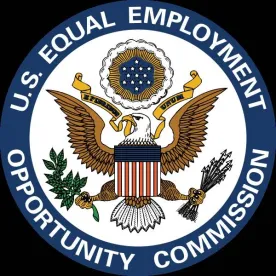In its opinion issued in EEOC v. TriCore Reference Labs, the U.S. Court of Appeals for the Tenth Circuit offered hope to employers within that Circuit facing overly broad information requests and/or subpoenas from the EEOC. Specifically, the Tenth Circuit upheld the denial of the EEOC’s effort to enforce such a subpoena, weighing in on the boundaries placed on the EEOC’s administrative subpoena powers.
By way of background: In this matter, as part of its investigation into a single charge of sex/pregnancy discrimination and disability discrimination filed by a single employee, the EEOC requested personally identifying information for: (1) all employees who had requested an accommodation for disability; and (2) all employees who had been pregnant while employed, for at least a three-year window.
When the Respondent refused such request and refused to comply with the EEOC’s subpoena, the EEOC took to the courts, submitting an application to the U.S. District Court for the District of New Mexico requesting an order to show cause why the subpoena should not be enforced. The District Court sided with the Respondent, however, denying the EEOC’s application, finding it difficult to determine the EEOC’s intent in seeking the information.
Unhappy with this outcome, the EEOC appealed and suffered another blow when the Tenth Circuit affirmed the denial of the EEOC’s application, finding no abuse of discretion by the lower court. While acknowledging the investigatory powers of the EEOC, the appeals court discussed the EEOC’s burden of showing the relevancy of the information sought in the subpoena. To make such showing, the Tenth Circuit advised that the EEOC must establish it had “realistic expectations rather than an idle hope that the information requested will advance its investigation.” It shot down the EEOC’s arguments in favor of broad “pattern or practice” evidence, finding that even if there had been a single Americans with Disabilities Act violation (as alleged by the EEOC), there was nothing to indicate that single incident was based on company policy or that there was any pattern or practice of a similar action when responding to others’ accommodation requests. To the contrary, nothing in the single-employee Charge implicated another Charging Party, any other charge number, or anything to indicate another charge was at issue. As the EEOC was entitled only to evidence “relevant to the charges under investigation,” the District Court’s denial of broader discovery was upheld.
The Tenth Circuit also rejected the EEOC’s argument that the pregnancy request would garner comparator information, finding the request to be overly broad (seeking information regarding pregnant employees who had not sought any accommodation, as well as those who had). While pointing out limited information that could be relevant from a comparator standpoint, the Tenth Circuit noted that the EEOC had neglected to make such relevancy arguments. Finding the EEOC to have offered a “paltry explanation” of the relevance, as well as considering the overbreadth of the request, and the EEOC’s burden of proof, the Tenth Circuit affirmed the denial of the EEOC’s application. Going forward, employers faced with similar subpoenas in the Tenth Circuit may find this case helpful as they navigate their responses and any applicable objections.




 />i
/>i
